ICNC launched the Curriculum Fellowship Program in 2014 to support development of courses on nonviolent conflict and promote teaching in the growing field of civil resistance studies. Seven curriculum fellows were selected the inaugural year. In 2016, ICNC added a new component to the program: online courses for our fellows to teach. That became an integral part of the initiative and, soon, the 2017 fellows were teaching both classroom-based and online courses on civil resistance.
ICNC is excited to continue the Curriculum Fellowship Program by accepting nine fellows for the 2019-2020 cohort.
The 2019 Fellows are:
Alice Borchi
Daniel DiLeo
Ying Hooi Khoo
Andrea Malji
Joám Evans Pim
Ketakandriana Rafitoson
Rajendra Senchurey
Maurício Vieira
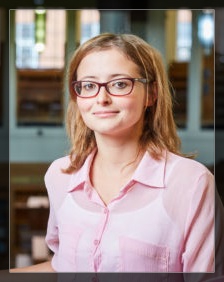 Alice Borchi, PhD, is a Lecturer in Creative Industries at the University of Leeds. Her research interests include the cultural commons, cultural policy and cultural value. She obtained her PhD in Cultural Policy Studies at the University of Warwick in 2018.
Alice Borchi, PhD, is a Lecturer in Creative Industries at the University of Leeds. Her research interests include the cultural commons, cultural policy and cultural value. She obtained her PhD in Cultural Policy Studies at the University of Warwick in 2018.
Course Title: Arts and Activism
Location: School of Performance and Cultural Studies, University of Leeds, United Kingdom
Course Abstract: This module is designed for future cultural practitioners and arts professionals who wish to gain a deeper understanding of the intersection between arts, activism and civil resistance. It examines the importance of cultural and symbolic resistance in fighting oppressive structures, and the important role that artists and cultural workers have played in social movements for change. Equally, the module analyzes how global struggles for climate justice, human rights and workplace equality are fought within the professional spheres of arts and culture. Students are encouraged to explore the ways arts and culture can communicate important messages, change minds and encourage people to action.
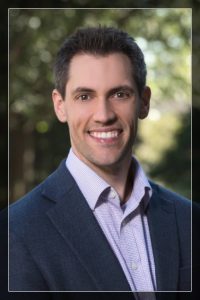 Daniel R. DiLeo, PhD, is assistant professor and director of the Justice and Peace Studies Program at Creighton University. His research focuses on Catholic social teaching and climate change, with particular emphasis on Pope Francis’s ecological encyclical Laudato Si’. Dr. DiLeo is the editor of All Creation is Connected: Voices in Response to Pope Francis’s Encyclical on Ecology (Anselm Academic, 2018) and has been published in the Journal of Moral Theology, Journal of Catholic Social Thought, and Horizons: The Journal of the College Theology Society, among other places. He earned his PhD in theological ethics with a minor in systematic theology from Boston College and his BA in sociology with a minor in inequality studies from Cornell University.
Daniel R. DiLeo, PhD, is assistant professor and director of the Justice and Peace Studies Program at Creighton University. His research focuses on Catholic social teaching and climate change, with particular emphasis on Pope Francis’s ecological encyclical Laudato Si’. Dr. DiLeo is the editor of All Creation is Connected: Voices in Response to Pope Francis’s Encyclical on Ecology (Anselm Academic, 2018) and has been published in the Journal of Moral Theology, Journal of Catholic Social Thought, and Horizons: The Journal of the College Theology Society, among other places. He earned his PhD in theological ethics with a minor in systematic theology from Boston College and his BA in sociology with a minor in inequality studies from Cornell University.
Course Title: Theological Ethics: Social Action and Political Advocacy
Location: Creighton University, Omaha, NE, USA
Course Abstract: This course empowers students to catalyze effective faith-based sociopolitical change through the study of fundamental moral theology, applied theological ethics, and nonviolent civil resistance. To this end, the course has two dimensions. First, it introduces students to fundamental terms, principles, and theories in Catholic theological ethics. Second, the course familiarizes students with concepts, models, and methods of nonviolent struggle that can inform faith-based social action and political advocacy. To enhance and enliven students’ content understanding, this is an academic service-learning course through which students serve at a local community partner site for at least 20 hours during the semester.
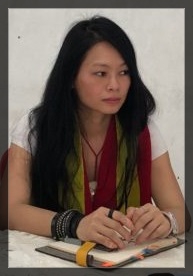 Ying Hooi Khoo, PhD, is Deputy Head and Senior Lecturer at the Department of International and Strategic Studies, University of Malaya. Her research interests include civil society, social movements, national human rights institutions, human rights, and democratization with a regional focus on Southeast Asia, especially Malaysia and Timor-Leste. She is the author of Seeds of Dissent (2015) and Bersih Movement and Democratization in Malaysia (forthcoming). She also co-edited Social Movements in Malaysia: A Vehicle for Citizen’s Action (with Denison Jayasooria, forthcoming). Currently a columnist in a local newspaper, Ying Hooi is the Editor-in-Chief of the Malaysian Journal of International Relations (MJIR). She has been working with several national and international NGOs related to human rights and democracy.
Ying Hooi Khoo, PhD, is Deputy Head and Senior Lecturer at the Department of International and Strategic Studies, University of Malaya. Her research interests include civil society, social movements, national human rights institutions, human rights, and democratization with a regional focus on Southeast Asia, especially Malaysia and Timor-Leste. She is the author of Seeds of Dissent (2015) and Bersih Movement and Democratization in Malaysia (forthcoming). She also co-edited Social Movements in Malaysia: A Vehicle for Citizen’s Action (with Denison Jayasooria, forthcoming). Currently a columnist in a local newspaper, Ying Hooi is the Editor-in-Chief of the Malaysian Journal of International Relations (MJIR). She has been working with several national and international NGOs related to human rights and democracy.
Course Title: Social Movements and Democratization
Location: Department of International and Strategic Studies, University of Malaya, Malaysia
Course Abstract: This course is designed to introduce students to examine social and civil resistance movements and its relation to the democratization process. The course covers the concepts, theories and impacts of social movements on world politics in transnational context, as well as the civil resistance struggles. The students will be exposed on the interaction between social and civil resistance movements and key political actors and the usage of media as a tool to increase the influence of social movements. This course emphasizes strategic nonviolence with case studies to generate new insights into the strategic interactions between nonviolent movements and states.
 Andrea Malji, PhD, is an Assistant Professor in the Department of History and International Studies at Hawai’i Pacific University. She received her PhD in Political Science from the University of Kentucky in 2015. Her research focuses on political violence, terrorism, and gender with a regional specialization in South Asia. Her current work analyzes female recruitment and involvement in nationalist organizations in South Asia.
Andrea Malji, PhD, is an Assistant Professor in the Department of History and International Studies at Hawai’i Pacific University. She received her PhD in Political Science from the University of Kentucky in 2015. Her research focuses on political violence, terrorism, and gender with a regional specialization in South Asia. Her current work analyzes female recruitment and involvement in nationalist organizations in South Asia.
Course Title: Civil Resistance and Nonviolent Movements
Location: Department of History and International Studies, Hawai’i Pacific University, USA
Course Abstract: Dr. Malji will be teaching a dual graduate/undergraduate course on Civil Resistance and Nonviolent Movements in Spring 2020. The course will explore key discussions and topics including the history, definitions, types, and responses to civil resistance, challenging colonialism through civil resistance, civil resistance through art, and civil resistance movements throughout the world. Much attention will be devoted to civil resistance in Indigenous communities, especially Hawai’i and the current movement centered around Mauna Kea. The course will also cover the changing dynamics of civil resistance, such as hacktivism.
 Joám Evans Pim, PhD, has served as director of the nonprofit Center for Global Nonkilling, Hawaii, since 2011. He teaches seasonally at Åbo Akademi University’s Master’s Program in Peace, Mediation and Conflict Research in Vasa, Finland, and at Jaume I University’s Master’s Program in Peace, Conflicts and Development in Castelló. Joám earned his PhD in Social Sciences at Åbo Akademi University after following graduate and undergraduate studies in Journalism, Social and Cultural Anthropology and Politics (Peace Studies). As an activist, he has been involved with environmental movements and actions over the years, particularly around mining, community-based conservation, and the defense of common lands.
Joám Evans Pim, PhD, has served as director of the nonprofit Center for Global Nonkilling, Hawaii, since 2011. He teaches seasonally at Åbo Akademi University’s Master’s Program in Peace, Mediation and Conflict Research in Vasa, Finland, and at Jaume I University’s Master’s Program in Peace, Conflicts and Development in Castelló. Joám earned his PhD in Social Sciences at Åbo Akademi University after following graduate and undergraduate studies in Journalism, Social and Cultural Anthropology and Politics (Peace Studies). As an activist, he has been involved with environmental movements and actions over the years, particularly around mining, community-based conservation, and the defense of common lands.
Course Title: New Tendencies in Peace and Conflict Studies
Location: Universitat Jaume I, Cátedra UNESCO de Filosofia para la Paz, Spain
Course Abstract: New Tendencies in Peace and Conflict Studies is an optional course taught in Spanish for the Master’s Degree in International Peace, Conflict and Development Studies, a program established at Jaume I University (Castelló, Spain) in 1996 and acknowledged as a UNESCO Chair of Philosophy for Peace. As part of its explorations of new trends in peace and conflict research, the course will offer a multidisciplinary approach to civil resistance, from the anthropological foundations of human nonviolent potential to the futures perspective on how civil resistance can be guided by the images of preferred futures. The course will unfold over 15 three-hour-long sessions in the Spring semester of 2020 with a group of approximately 15 students.
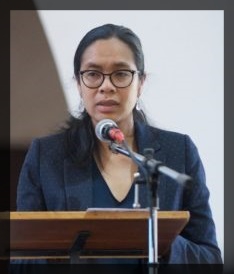 Ketakandriana Rafitoson, PhD, is a Malagasy political scientist, researcher, and activist who is currently leading the national chapter of Transparency International in Madagascar. Ketakandriana has founded several associations and social movements in Madagascar and aims to spread the spirit of nonviolent civil resistance as a political tool across her country. She believes in people power and strives for a more just world where all would have equal opportunities.
Ketakandriana Rafitoson, PhD, is a Malagasy political scientist, researcher, and activist who is currently leading the national chapter of Transparency International in Madagascar. Ketakandriana has founded several associations and social movements in Madagascar and aims to spread the spirit of nonviolent civil resistance as a political tool across her country. She believes in people power and strives for a more just world where all would have equal opportunities.
Course Title: Citizens’ Mobilization in the Quest for Social and Political Justice: Theory and Practice
Location: Département de Droit et Science Politique, Université Catholique de Madagascar
Course Abstract: This course aims to teach the philosophy of nonviolent civil resistance through the lens of activism internationally and in Madagascar. The eight sessions of the course cover the legal and historical framework of social and political justice, the trends of civil resistance in Madagascar, the dynamics and practice of civil resistance—including strategies and tactics—and the importance of citizen engagement as a trigger for change. Apart from academic lectures, the course also features discussions with special guests, film screenings, and People Power gaming sessions.
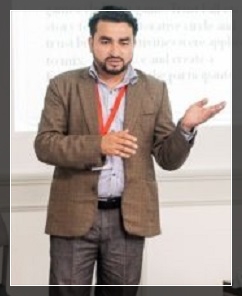 Rajendra Senchurey, MPhil, is a dedicated peace practitioner from Nepal currently working as the Programme Manager at the Nepal Peacebuilding Initiative in Kathmandu. He holds an MPhil in International Peace Studies from Trinity College Dublin in Ireland and a joint master’s degree in Conflict, Peace and Development Studies from Tribhuvan University in Nepal and the University of Ruhuna, Sri Lanka. He has a decade of experiences in the field of interfaith, inter-religious dialogue, nonviolence, conflict resolution, preventing/countering violent extremism, transitional justice, and sustainable peacebuilding. He has worked in these areas under several national and international fellowships including the one from UNESCO, KAICIID and FK Norway. He regularly writes in Nepal’s leading national dailies as a freelance contributor.
Rajendra Senchurey, MPhil, is a dedicated peace practitioner from Nepal currently working as the Programme Manager at the Nepal Peacebuilding Initiative in Kathmandu. He holds an MPhil in International Peace Studies from Trinity College Dublin in Ireland and a joint master’s degree in Conflict, Peace and Development Studies from Tribhuvan University in Nepal and the University of Ruhuna, Sri Lanka. He has a decade of experiences in the field of interfaith, inter-religious dialogue, nonviolence, conflict resolution, preventing/countering violent extremism, transitional justice, and sustainable peacebuilding. He has worked in these areas under several national and international fellowships including the one from UNESCO, KAICIID and FK Norway. He regularly writes in Nepal’s leading national dailies as a freelance contributor.
As an intellectual from the Dalit community (the so-called “untouchables” that rank at the bottom of the Hindu caste hierarchy), he lives his life with a dual objective: to extirpate caste-based discrimination and to promote sustainable peace in Nepal and beyond. His motto is “Life is too short to discriminate others: Let everyone enjoy freedom and equality.”
Course Title: The Power of Civil Resistance
Location: MICD, Mid Western University, Lalitpur, Nepal
Course Abstract: Nepal experienced a decade-long armed insurgency from 1996-2006 where there was a loss of around 17,000 lives. The conflict ended with the signing of the peace agreement between the warring parties, but the remnants of the violence continued to perpetuate. Several armed political groups emerged in the country, posing an imminent threat against the fragile post-conflict peace. Consequently, people started using violence as the only possible method to achieve the desired political objectives. This course aims to turn this culture of violence to the culture of peace by promoting nonviolence and civil resistance.
This course will bring political leaders, civil society stalwarts, media workers, religious leaders, human rights activists, and others together to teach them about the beauty and power of civil resistance in their native language using the resource materials in Nepali generously produced by ICNC. There will be seven 90-minute modules in total, taught over seven weeks. The course will cover the following topics: Introduction and foundation of civil resistance; civil resistance around the world; the difference between civil resistance revolutionaries and peacebuilding resolutionaries; dos and don’ts of civil resistance; and a practical guide to design a campaign. The sixth module offers a panel discussion with prominent academics and Satyagrahi, and the final module will reflect all the preceding modules as well as evaluate of the course.
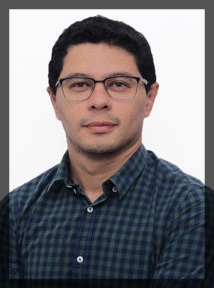 Maurício Vieira, MA, is a 2019 PhD Candidate in International Politics and Conflict Resolution at the University of Coimbra in Portugal and a researcher at the Nationalities Observatory, associated to the Ceará State University (UECE), in Brazil. As part of his PhD, Maurício became Visiting Doctoral Researcher at the University for Peace, in Costa Rica; Visiting Doctoral Fellow at the Norwegian Institute of International Affairs (NUPI), in Oslo, Norway; Junior Visiting Fellow at the Centre for Conflict, Development and Peacebuilding (CCDP) at the Graduate Institute, in Geneva, Switzerland; and adviser at the Permanent Mission of Brazil to the United Nations in New York. He also assumed a position at the Permanent Mission of Brazil to the United Nations in Geneva. Maurício holds an MA in International Relations with a focus on Peace and Security Studies from the University of Coimbra (2012) and a Specialization Diploma in International Law from the University of Fortaleza, in Brazil (2015), where he also obtained a BA in Journalism (2006). His areas of research focus on peacekeeping and post-conflict reconstruction policies established by the United Nations.
Maurício Vieira, MA, is a 2019 PhD Candidate in International Politics and Conflict Resolution at the University of Coimbra in Portugal and a researcher at the Nationalities Observatory, associated to the Ceará State University (UECE), in Brazil. As part of his PhD, Maurício became Visiting Doctoral Researcher at the University for Peace, in Costa Rica; Visiting Doctoral Fellow at the Norwegian Institute of International Affairs (NUPI), in Oslo, Norway; Junior Visiting Fellow at the Centre for Conflict, Development and Peacebuilding (CCDP) at the Graduate Institute, in Geneva, Switzerland; and adviser at the Permanent Mission of Brazil to the United Nations in New York. He also assumed a position at the Permanent Mission of Brazil to the United Nations in Geneva. Maurício holds an MA in International Relations with a focus on Peace and Security Studies from the University of Coimbra (2012) and a Specialization Diploma in International Law from the University of Fortaleza, in Brazil (2015), where he also obtained a BA in Journalism (2006). His areas of research focus on peacekeeping and post-conflict reconstruction policies established by the United Nations.
Course Title: Introduction to Peace & Conflict Studies: Nonviolent Civil Resistance
Course Location: Ceará State University (UECE), Brazil
Course Abstract: This course aims to introduce the debate over the concepts of peace, nonviolent conflict and resistance into the Brazilian academic context as well as to motivate students to develop and improve their skills in this field of research. Secondly, it will promote discussions about what each of these three concepts entails to the perspective on resistance and provide students with the epistemological tools they can apply to analyze and to problematize civil resistance movements around the world, in order to avoid the reproduction of their misconceptions. Since the course will focus on civil resistance as a main actor in the social and state dynamics, students will be capable of identifying which dialogue civil resistance can promote within a bottom-up perspective and top-down approach.